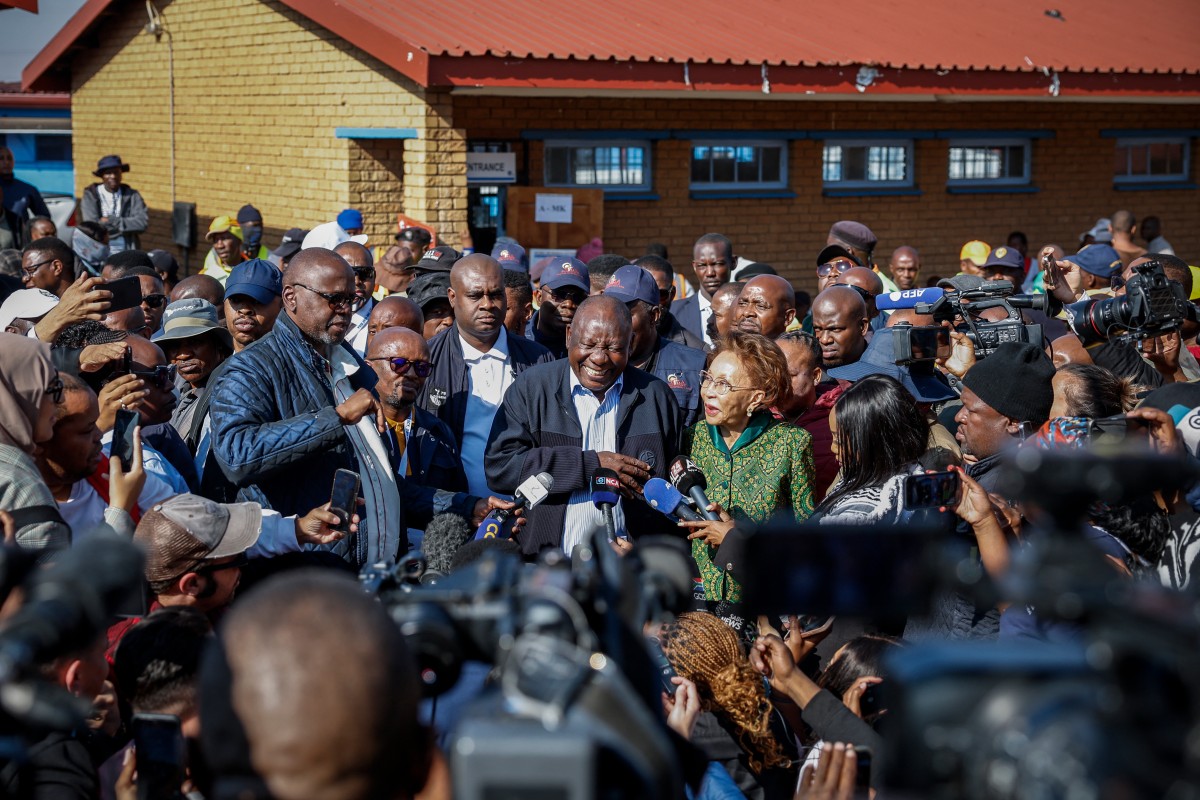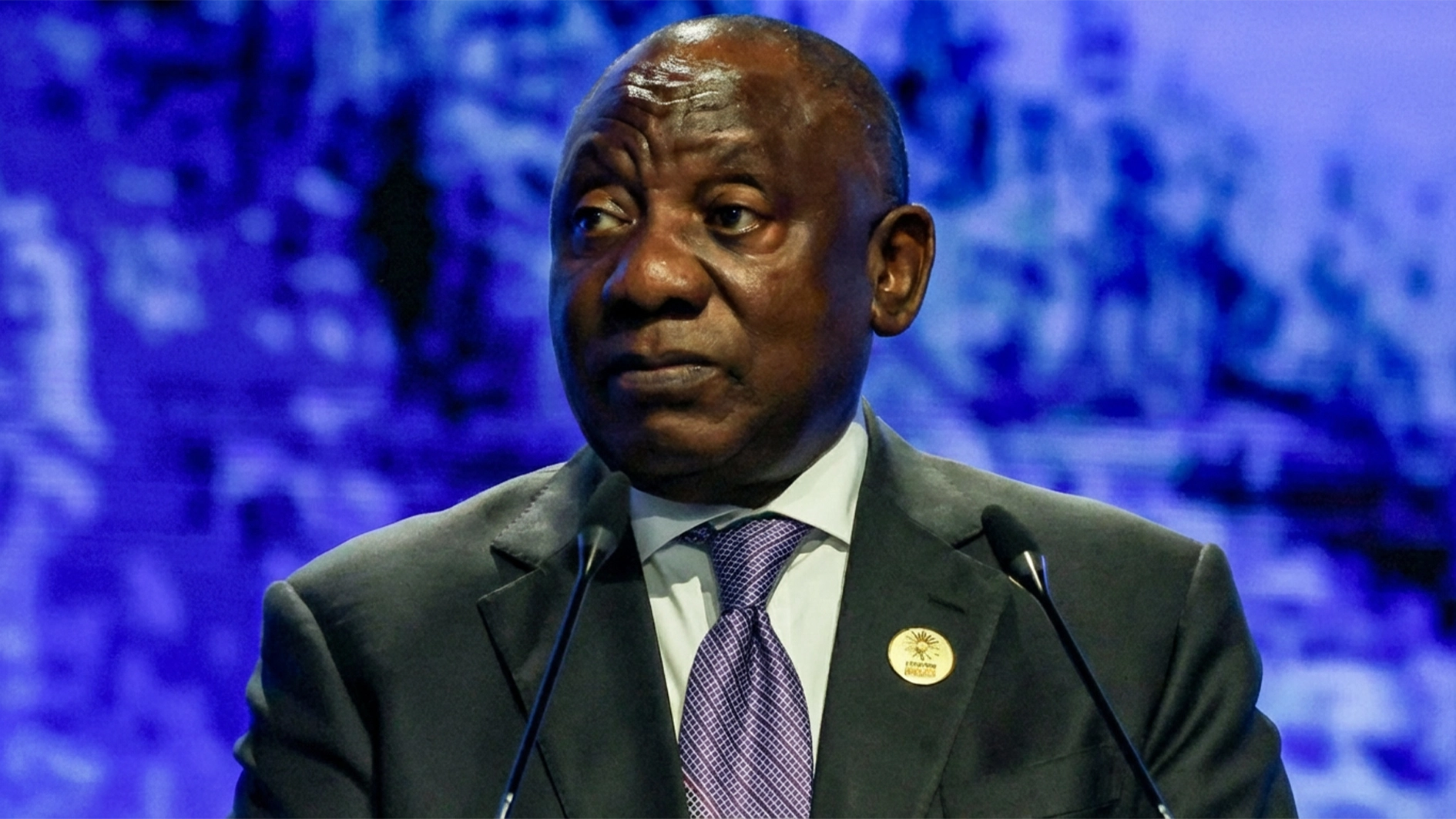
It was predicted to go badly but turned out to be worse: South African President Cyril Ramaphosa led the ANC to its worst election result since the end of apartheid, one which threatens his survival.
Returns from more than 99 percent of the polling stations used in Wednesday’s election showed ANC had barely scraped past 40 percent of the vote, a spectacular drop from the 57.5 it won in 2019.
The shock result will prove a litmus test for Ramaphosa, a popular party figure with a reputation as a fine negotiator beneath his affable demeanour, political commentators say.
ANC, a now divided movement that led the nation out of white-minority rule and into democracy, will remain the largest party in parliament but will lose its majority, heralding choppy uncharted waters for the party once led by Nelson Mandela.
It will have to forge alliances to re-elect Ramaphosa at the end of the month and stay in power, with its hand forced into possible concessions with minnows it failed to beat in the election.
But Ramaphosa will first have to persuade his party’s all powerful yet split National Executive Committee to keep him in the job.
In 2022, his party lawmakers closed ranks around him at an impeachment vote over a scandal subbed “farmgate” that nearly cost him his job, when hundreds of thousands of dollars were reported stolen from a sofa in his country home.
He was also re-elected the ANC president that same year in a race that looked closer than expected.
“The party has rallied around him to a certain extent. There have been very high level comments saying ‘we are not going to recall Ramaphosa’,” Christopher Vandome, senior research fellow at the London-based Chatham House think tank, told AFP.
– ‘Too many skeletons’ –
The 71-year-old former trade unionist and mines boss came into power in 2018 as a graft-busting saviour after the corruption-tainted tenure of predecessor Jacob Zuma.
A fluent speaker of all of the country’s 11 official languages, he took up anti-apartheid activism while studying law in the 1970s and spent 11 months in solitary confinement in 1974.
Preferred by Mandela as his heir, he stood alongside the liberation hero when he walked out of jail in 1990. But the farmgate case dealt a massive reputational blow to the wealthy businessman and for many the storied ANC has become synonymous with corruption.
Ramaphosa has denied any wrongdoing.
South Africans remain vexed by a prolonged water and electricity crisis that has put a drag on Africa’s most industrialised economy with crime and unemployment rates running high.
Yet the lack of a formidable successor could keep Ramaphosa in power, author and analyst Susan Booysen said.
“The irony is that there are no real alternatives in the ANC at this point,” she told AFP, adding that names that were being floated had “too much baggage, too many skeletons.”
“In how I read the signals at this stage is Ramaphosa is surviving despite the dismal and disastrous performance of the ANC,” Booysen said.
– Calls to quit –
With no unifying candidate to take over from Ramaphosa, the choice of a bedfellow could prove the next hurdle.
Data from the Independent Electoral Commission showed the centre-right Democratic Alliance (DA) held second place with 21.71 percent, slightly up on its 20.77 showing in 2019.
But it was not the DA that dealt the decisive blow.
In third place was former president Jacob Zuma’s uMkhonto weSizwe (MK) on 12.6 percent, a surprise score for a party founded just months ago as a vehicle for the former ANC chief.
The ANC could have no choice but to co-opt the DA into a national coalition government, analysts say, describing it as Ramaphosa’s best bet for survival.
“The DA will want to keep Ramaphosa in charge and would not want the other alternatives,” said Vandome.
Booysen agreed.
– Miraculous canvassing –
“The possible coalition partners don’t pose an alternative, don’t bring an alternative, charismatic, dynamic, popular president.”
Zuma’s MK has vowed to play hard ball, ruling out any partnership talks if Ramaphosa remained at the helm of ANC.
“We will engage with the ANC but not the ANC of Cyril Ramaphosa,” spokesman Nhlamulo Ndhlela said.
Ramaphosa’s future nonetheless hangs fragile, threatening to follow the footsteps of his predecessors Zuma and Thabo Mbeki, who did not complete their tenures and were forced out by the ANC.
“That man did very well for the ANC. He led from the front,” said ANC deputy secretary general Nomvula Mokonyane, defending Ramaphosa’s record.
“He did miraculous canvassing, criss-crossed the country. All those that are doing any speculation don’t know the ANC.”






